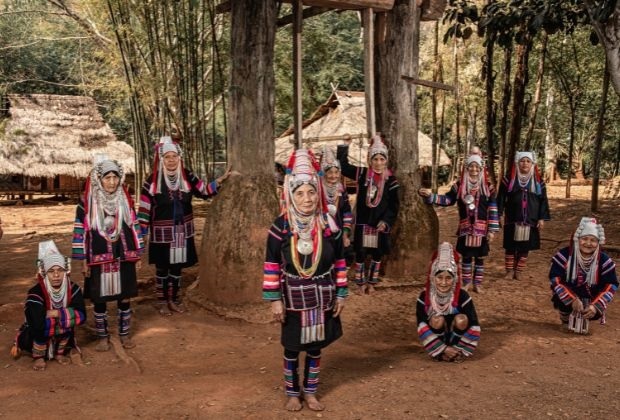Everyone can learn important lessons from other cultures. All cultures offer something unique and helpful for the people within that culture and without. As people living within the United States, one of the cultures we should prioritize learning from is the First Nations or Native American tribes. While cultures change between individual tribes, there are many common themes that we can learn from if we are willing to listen. We provide an overview of lessons everyone should learn from Native American tribes below. Use this as a guide to ask more detailed questions when interacting with First Nations peoples.
How To Shape Identity, Individually and Communally
Where does our identity come from? Different cultures have different beliefs on this matter. In many native tribal cultures, identity came from individual talents and interests and an individual’s community. For example, there were often whalers as part of the indigenous communities on the Pacific Northwest coast. An individual may swim better than average and show an interest in the ocean. This talent and interest, along with the community’s gender roles and family specializations, could help shape the individual’s identity as a whaler.
While the U.S. is a melting pot of cultures now, European and other Western ideas inform much of our societal norms. One such norm is that individuals define themselves. While our talents and interests are important, paying attention to our community could help us recognize and embrace new parts of our identities.
The Importance of Storytelling
Another important aspect of many First Nations cultures is storytelling. Storytelling was the primary means of communicating history, customs, legends, and other important pieces of a tribe’s culture. In many cases, the elders would share these powerful, vivid stories with younger generations so they could learn the stories themselves, and key characteristics such as honor and love.
Contemporary North American culture doesn’t put much emphasis on the wisdom of elders. As technology reshapes how we live, work, and play, a common thought has become that senior citizens can’t offer much wisdom. However, listening to their stories can teach us how to survive in a changing world and what characteristics we should display.
How To Care for the Environment
While there are many lessons everyone should learn from Native American tribes, the last one we’ll focus on in this article is caring for the environment. We can see the impact of climate change through photos and know that the environment needs help. First Nations cultures always respected and cared for the environment because they believe in a spiritual connection between all living things, including the earth.
We don’t have to believe in a spiritual connection between us and the earth, but we do need to prioritize and honor it for its role in our lives. The Nez Perce continue to do so, fighting to improve water quality in Hells Canyon. What is happening to the environment in your area and how can you fight for it?
Examining key aspects of other cultures, including cultures physically close to our homes, such as the First Nations, can help us grow as individuals and as a society. Respectful interaction with different cultural groups is the only way we can learn, grow, and make the world a better place.
 World inside pictures Collect and share the best ideas that make our life easier
World inside pictures Collect and share the best ideas that make our life easier








